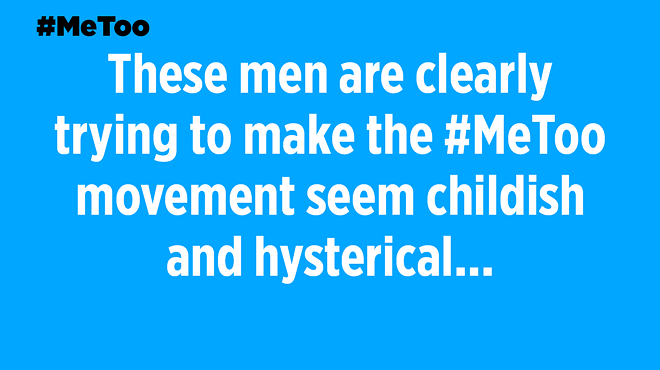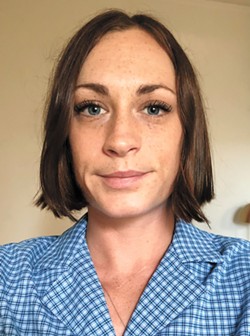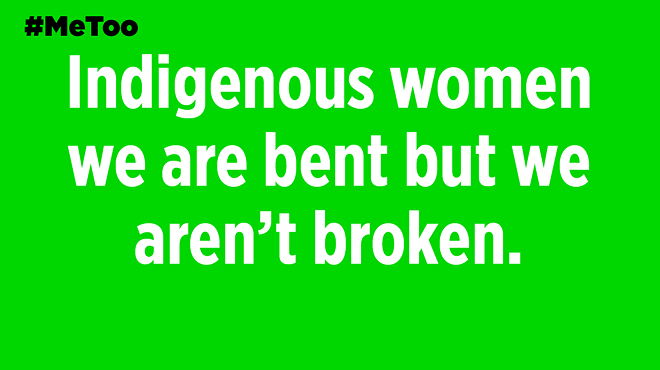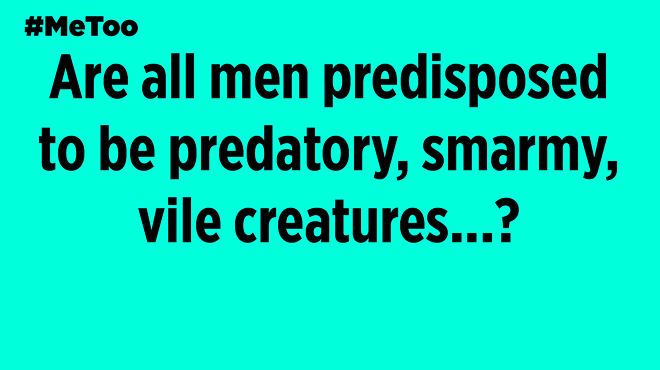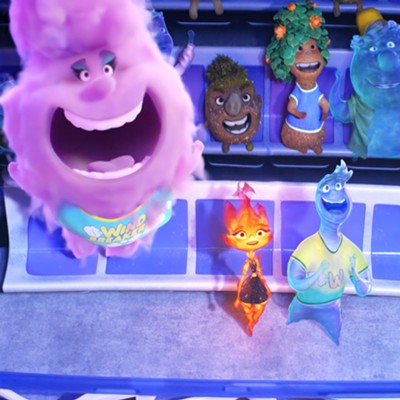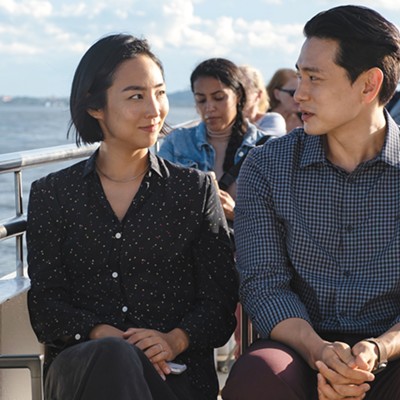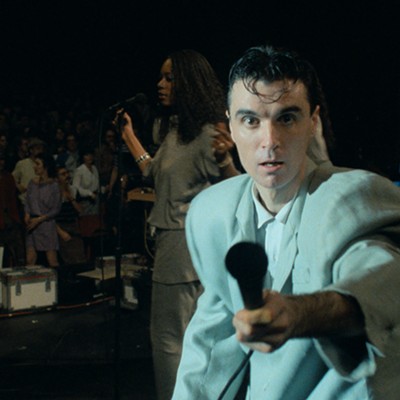
Alexis Taylor finally had enough. The lengthy Instagram post the 23-year-old made that Thursday in late June was something she'd written out many times: the story of how a former friend raped her after asking for a ride home when he was drunk in downtown Spokane. Afterward, he'd promised to change his behavior, but after learning he'd hurt someone else, Taylor was ready to make her story public.
"Here I am, after giving my abuser two chances that they didn't deserve, outing them publicly," her post reads in part. "I regret every single time I have tried to help you after this. You don't deserve my kindness. Go to therapy, and f—- off."
Taylor's post would not only inspire close friends to publicly share their own stories of being raped, but a deluge of other women would speak out, too. Several more public posts appeared on Instagram and Facebook, shining a light on the dark behaviors of sometimes trusted and popular people in the downtown Spokane nightlife scene. They included accounts of rape, of coercion, of being drugged and assaulted. Some posted photos of bruises. In one screenshot, a man explicitly admitted to a friend that "I raped" someone, naming the woman he'd hurt.
Suddenly, it appeared Spokane was having its own massive #MeToo reckoning. A Facebook thread that listed all the allegations in one place grew longer and longer. People sometimes tagged the men's employers, and in at least two instances, local businesses responded swiftly, offering public statements and firing those who were accused.
But there are limitations to a reckoning that largely exists on social media. The Facebook list compiling all the allegations was deleted while some other posts were hidden by women apparently afraid of being targeted or sued. None of the men have been charged in connection with the accusations. Indeed, until the Inlander asked Spokane Police, a department spokesman said he hadn't heard anything about it.
That particular limitation is not new. Many women don't feel comfortable going to the police or through the criminal justice system. Even when they do, the reality is that victims rarely see a conviction: Only 230 of 1,000 rapes are ever reported to police, and of those, only five cases will typically end in felony convictions, according to the Rape, Abuse and Incest National Network (RAINN) and statistics from the FBI.
As a result, many women decide not to recount their trauma repeatedly in a legal process that can take years and instead try to warn other women by posting on social media. Collectively, these messages call for action: Look out for these people who've hurt us. Believe us.
In her post, Taylor asked for her friends to recognize that they maybe even saw her being emotionally abused afterward and did nothing, choosing to associate with the person who hurt her.
"I need you to show that you stand with those who have experienced sexual assault," Taylor writes. "Maybe sit with that discomfort for a bit and think about why you haven't worked on unlearning your ingrained misogyny."
"It's this big wake-up call about drinking culture, about nightlife, about predatory behavior and misogyny. It's been incredibly disturbing, to be honest."
tweet this
In one of the first public responses from a business in late June, Lucky You Lounge publicly called out sound technician Jackson Cate. Karli Ingersoll, co-owner of the Browne's Addition music venue and restaurant, knew she had to be specific in her statement, especially since Cate was a longtime employee and her former bandmate.
"One in five women will be victims of sexual assault. It follows that when a woman takes the massive risk to publicly acknowledge an assault, we must believe her," the Lucky You post reads. "It also follows that the perpetrators of these horrible actions are likely people we know."
Lucky You management was made aware, the post states, that Cate was one of those alleged perpetrators. They fired him and pledged to make their venue safer.
"It's this big wake-up call about drinking culture, about nightlife, about predatory behavior and misogyny," Ingersoll tells the Inlander. "It's been incredibly disturbing, to be honest."
As posts were widely shared across social media, many saw a screenshot of an Instagram message Cate had sent to his friend Tyann Smith.
"I just wanted to say that even though you decided to stay my friend after I raped Alyse, I would never want or expect you to defend me or what I did," Cate wrote, going on to say he's sad to think Smith "could be associated with me and my wrong actions."
Cate, 29, tells the Inlander that he wrote the message to Smith after seeing allegations against someone they both know. At first, he claims he wanted to acknowledge the burden he'd put on her by previously sharing that he'd hurt a woman, especially now that it appeared multiple men she knew had been harmful. But he also admits it was a "self-serving" and "manipulative" message looking for reassurance she'd remain his friend.
He also thought he might be named soon.
"After I saw this other person being outed, I thought to myself, 'This could absolutely happen to me, too. Maybe these women will do the same,'" Cate tells the Inlander. "A couple days later, they did."
Smith, 28, says she hadn't actually initiated conversations with Cate since he'd told her about harming a woman two years ago.
Knowing who that was now, Smith sent a screenshot of Cate's message to Alyse Pugh. With that message in hand, Pugh says she finally felt comfortable sharing her story.
Now living in California, Pugh, 25, says Cate was an acquaintance when they were drinking at Garageland in 2018 and she got incredibly drunk. Multiple friends noted that the 97-pound woman was highly intoxicated, Pugh recalls, and they told Cate to make sure she got home to her apartment a block away. Instead, Pugh says she woke up in the middle of the night at Cate's house to him raping her.
"I came to and Jackson was having sex with me, and I was like, 'What is happening, why is this occurring?'" Pugh says. "I had come to for probably, like, three seconds, and I blacked back out."
Another woman, Maddison Fernandez, 24, shares a similar story, noting that she felt pressured into sex with Cate when she was highly intoxicated a few years ago and he drove her to his house instead of giving her a ride home. Another time, when she says they were both sober, Fernandez says he pushed her onto his bed, kissed her, and held his belt against her neck until she started sobbing.
"I didn't want to be kissing him and certainly didn't want his belt against my throat," Fernandez recalls. "I cried for a long time, and he cried and was like, 'I just need physical affection. I don't understand how I'm supposed to get it.'"
After Pugh and Fernandez' stories were posted publicly, Smith says she realized how similar they were to her own experience on a drunken night five years ago. As a friend, she'd gone to Cate's apartment after a party to listen to records, and recalls that he was going to take her home since he was sober enough. She woke up naked in his apartment, confused, and says that during therapy, she had a flashback of waking up to Cate having sex with her. After receiving his message this June, Smith told Cate he raped her, and he didn't respond.
Fernandez says several other women with similar experiences with Cate came forward to her via Instagram after her post.
Cate acknowledges to the Inlander that his actions with multiple women have been wrong, emphasizing the lack of affirmative consent when someone is drunk.
"What I remember happening [is] very different than the stories that were posted on Instagram," Cate says. "It's been important for me to understand that sex often involved alcohol, often involved being drunk, and that was normal to me, and that was wrong that that was normal to me."
He now says he felt the women had initiated or wanted to have sex with him and he doesn't think he raped them, disputing that anyone was ever asleep or passed out. But he also says he wasn't considering their ability to make decisions while impaired.
"I absolutely believe that I was in the wrong," Cate says.
He says he's been to therapy, and has been reading about rape culture and trying to hold himself accountable since what happened with Pugh two years ago. That includes referring to what happened in Pugh's words.
"There's a part of me that absolutely believes [Pugh], and holds her experience as valid," Cate says. "And there's also part of me, naturally, that believes me and what I remember experiencing. And that's complicated."
For Pugh, who says she'd been violently assaulted before by another man, it was initially hard to recognize what had happened with Cate as "rape." Even though she was uneasy about what happened, when Cate gave her a ride home the next morning, she texted to thank him for being a gentleman. That's partly why Cate says he was confused, too.
But as Pugh realized just how broken her memories were from the night, she soon confronted Cate. He told her she kissed him, Pugh recalls, and that maybe he chose to see what he wanted to see, because he "hadn't felt wanted in such a long time."
"I was like, 'He definitely had nonconsensual sex with me,'" she says. "But I wasn't wanting to call it what it was, because that word is such a heavy, powerful word, and I felt like I was taking away from my previous experience by calling that 'rape.'"
Traumatic experiences can actually alter the brain: It's not uncommon for victims to struggle with recall or framing what took place for a while, victim advocates say.
For Pugh, talking through what happened hardened her resolve, and in the end she told Cate it was rape. After moving to California, she also underwent eye movement desensitization and reprocessing (EMDR) therapy, which is often used for people with severe post-traumatic stress disorder. Pugh says the therapy helped her reduce her panic attacks from her previous assault and stop feeling like she was walking through life outside of her own body.
"What many survivors say that they want is they want the perpetrator to be held accountable, they want for people to believe them, they want to feel validated..."
tweet this
For victims or survivors of sex crimes, one of the most important things can be gaining back a sense of power and control over their own decisions and bodies, explains Kristina Poffenroth, a Washington certified sexual assault and crime victim advocate who works with Lutheran Community Services Northwest.
Lutheran provides free and confidential services to victims, including a sexual assault hotline (624-7273), which is answered by volunteers and victim advocates who can help people struggling after an assault, whether that happened 30 years ago or an hour ago, Poffenroth says. She's also helped develop a bystander intervention course that local bars can request for their staff.
Advocates can connect victims with counseling, go with someone to the hospital to have a rape kit taken, and/or be there the entire way through the legal system if that's the route someone chooses. In the case of choosing to post a story publicly, Poffenroth says she might ask the victims what response they hope to get, and what their plan is if that response is negative.
"I think the thing that drives people to maybe share publicly rather than talking to law enforcement — what many survivors say that they want is they want the perpetrator to be held accountable, they want for people to believe them, they want to feel validated, and they don't want it to happen again," Poffenroth says. "And sometimes when you do report to law enforcement, none of those things happen."
Before posting publicly, Taylor spent hours talking with her friend Catherine McCully about trauma. McCully, 24, was also raped by someone she was close with, and the two women had talked about the pros and cons of publicly naming their abusers for a year or more. What might that accomplish? What could they expect from those who'd hurt them? From their social circles?
Taylor got a semblance of an apology from her rapist last fall, and she suggested several steps for him to take to redeem himself: Go to therapy, stop drinking, read about gender and rape. Do better.
He promised he would change. But just days before she decided to go public this summer, Taylor heard from another person who claims he had since raped them, too. Then, she learned there are others who've been hurt.
"It was the final straw. He was telling me he was working on getting better, reading books I recommended, he said he'd get therapy and stop drinking," Taylor says. "But he didn't do any of that."
Taylor posts snippets of conversations with the man and asks everyone reading the post to stop associating with or protecting known abusers.
Soon after Taylor's post goes up, McCully posts about her own experience.
"I've been angry for a long time and I've been angry about a lot of people who've quietly known about the rape culture in Spokane but have never been supportive," McCully tells the Inlander. "So I decided that I'm no longer gonna stay silent. I'm gonna come forward."
Her post similarly calls for community action.
"I don't want sympathy, apologies, or your pity. I want your anger," McCully's post reads. "You SHOULD be angry there are people in our community who've assaulted and coerced multiple acquaintances of yours."
Even as the women who came forward say they were mostly pleased with the public and professional response, they also note that going this route wasn't just about so-called "cancel culture."
"For Spokane, I want more," McCully says. "I hope to make a space for more victims to feel comfortable expressing their experiences, and know there's a community of other victims to support them."
McCully says people have asked why she and others didn't go to the police, but at least in her own case, she feels the justice system would not offer a path to redemption.
"It's also not a victim's job to go through the grueling process of reliving their trauma over and over again just to get a semblance of justice," McCully says. "I can't speak for everyone who's come forward and say that nobody was trying to cancel somebody or completely isolate them from support, but for me, the goal is to hold them accountable, offer redemption and the ability to grow as a person."
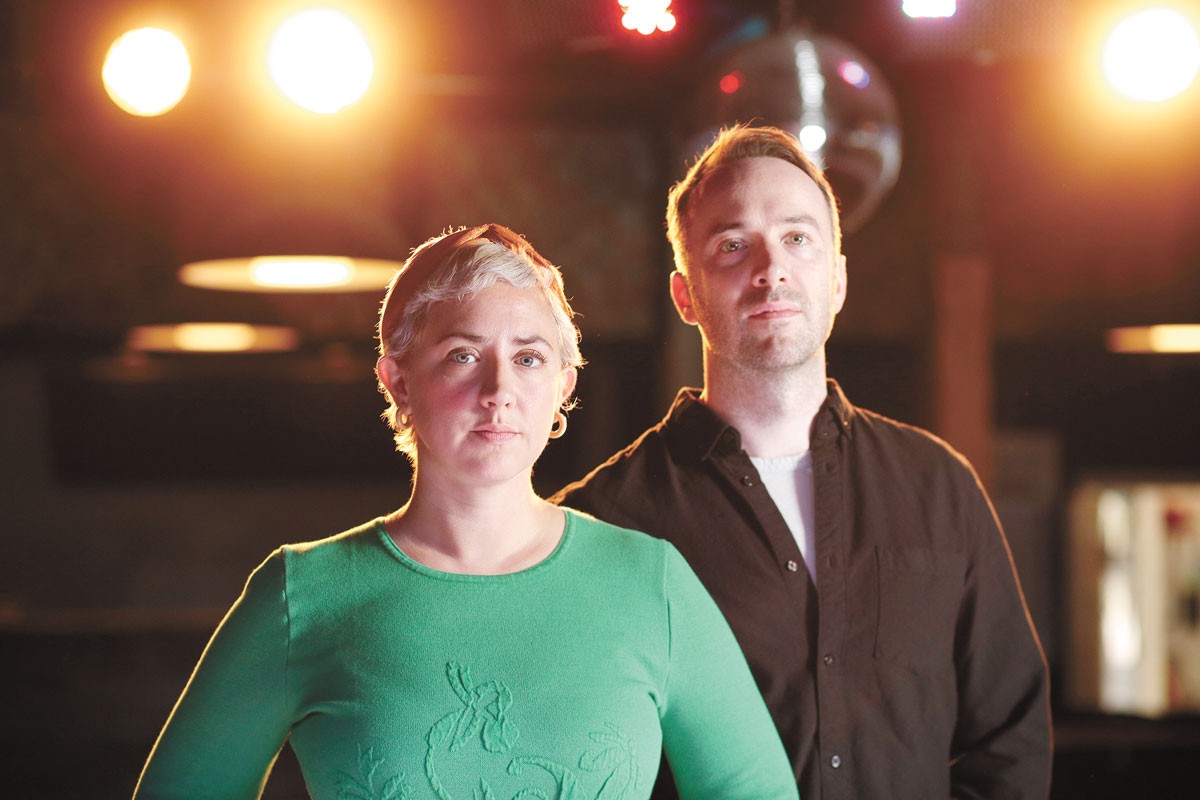
For the handful of women who shared their stories with the Inlander, the overwhelmingly positive community feedback was a welcome surprise, and getting a real response from businesses was meaningful.
Lucky You Lounge, Red Room Lounge, Garageland and the defunct all-ages venue the Bartlett all publicly posted on their social media accounts about firing or no longer serving people whose names appeared on the list. They emphasized the importance of believing people who share their stories of abuse, and of creating a safe space in their establishments.
They specified the next actions that would be taken, and as of publication, more than a month after the posts went up, they were still public on the businesses' social media pages.
After seeing the screenshot from Cate, Lucky You owner Ingersoll says she felt she had to say something publicly.
"He implicated himself in a way that made me feel like it was important for me to protect my entire staff from just posting something vague, and to just acknowledge what was going on and to stand for the people who were coming forward," Ingersoll says.
Garageland owner Shawn Heale posted his thoughts on his personal Facebook page, noting he fired two employees over the allegations and would no longer allow others on the list into his bar.
"We as businesses need to start being responsible about this and making sure it doesn't happen," Heale tells the Inlander. "There's a certain culpability that comes to owning a business, that you are responsible for the bad things that happen to your patrons because of your business. If you don't stand up against that and try to change everything so that that doesn't happen anymore, then you're just perpetuating the problem."
Both Ingersoll and Heale say the responses to their respective posts were overwhelmingly supportive, and both received messages from more people who wanted to tell their own stories of abuse and harassment within the local nightlife scene. Perhaps not surprisingly, there was also some backlash, both from commenters who didn't think their statements were straightforward enough, and from people skeptical that either business could have been so unaware of the alleged misconduct of their employees and regulars.
"People were saying, 'Well, you had to have known,'" Ingersoll says. "There have been things that have come to light that my other employees knew that I did not know. And they thought I knew. ... It just makes me realize how much we accept as fine in drinking culture. I mean, some of the stories that I've been told, I'm like, 'God, if I would have known.'"
Heale also says a lot of the allegations came as a shock, as he thought Garageland had been keeping tabs on so-called creepy behavior and doing a satisfactory job making sure its patrons were safe.
"And then when I started hearing all of this," he says, "I realized that we very much were not, and there was a lot of work to be done in that regard."
Garageland is currently closed after one of its employees tested positive for COVID-19, so Heale says he's still planning out the next course of action. But it likely will include extra security inside the bar on busy nights, and as an over-service precaution, Heale says he may discontinue the bar's signature cocktails served in hefty, 32-ounce Mason jars.
"I think taking accountability is the biggest first step," Heale says. "We can do everything that we can to keep people safe. But these people need to not have the status that they have to keep getting away with doing awful things to other people."
Lucky You Lounge is open for food service, but its performance stages have been vacant since March. Ingersoll admits there might be a silver lining to this sort of reckoning occurring mid-pandemic, because precautions can be put firmly in place long before live music revs up again.
They have already built a partition separating Lucky You's stage area from the restaurant, which allows staff to better monitor both spaces individually. Employees are currently undergoing sexual violence training with Lutheran Community Services, and anonymous communication channels will be set up so that folks can report serious concerns about any misconduct that might be occurring at the venue. Ingersoll says they're also installing security cameras and purchasing test strips that can determine if a drink has been drugged.
Lucky You will also likely push last call for drinks earlier, hopefully discouraging people from showing up at the end of the night after drinking elsewhere, when it may be hard to know how much they've already had.
"Those hours of the night typically are not great times for people," Ingersoll says. "We're just trying to stack up those things that prevent this from being a place where you can get super f—-ed up. We just don't want that. That culture is just really problematic, and I think it's actually really dangerous." ♦



